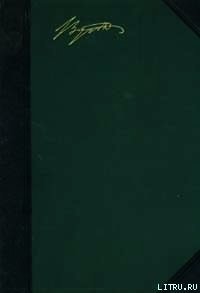Избранная лирика - Вордсворт Уильям (читать книги без регистрации полные txt) 📗
Тут можно читать бесплатно Избранная лирика - Вордсворт Уильям (читать книги без регистрации полные txt) 📗. Жанр: Поэзия. Так же Вы можете читать полную версию (весь текст) онлайн без регистрации и SMS на сайте online-knigi.org (Online knigi) или прочесть краткое содержание, предисловие (аннотацию), описание и ознакомиться с отзывами (комментариями) о произведении.
LINES WRITTEN AT A SMALL DISTANCE FROM MY HOUSE AND SENT
BY MY LITTLE BOY TO THE PERSON TO WHOM THEY WERE ADDRESSED
It is the first mild day of March:
Each minute sweeter than before
The redbreast sings from the tall larch
That stands beside our door.
There is a blessing in the air,
Which seems a sense of joy to yield
To the bare trees, and mountains bare,
And grass in the green field.
My sister! ('tis a wish of mine)
Now that our morning meal is done,
Make haste, your morning task resign;
Come forth and feel the sun.
Edward will come with you; — and, pray,
Put on with speed your woodland dress;
And bring no book: for this one day
We'll give to idleness.
No joyless forms shall regulate
Our living calendar:
We from to-day, my Friend, will date
The opening of the year.
Love, now a universal birth,
From heart to heart is stealing,
From earth to man, from man to earth:
— It is the hour of feeling.
One moment now may give us more
Than years of toiling reason:
Our minds shall drink at every pore
The spirit of the season.
Some silent laws our hearts will make,
Which they shall long obey:
We for the year to come may take
Our temper from to-day.
And from the blessed power that rolls
About, below, above,
We'll frame the measure of our souls:
They shall be tuned to love.
Then come, my Sister! come, I pray,
With speed put on your woodland dress;
And bring no book: for this one day
We'll give to idleness.
СТИХИ, НАПИСАННЫЕ НЕПОДАЛЕКУ ОТ ДОМА И ПЕРЕДАННЫЕ МОИМ МАЛЬЧИКОМ ТОЙ, К КОМУ ОБРАЩЕНЫ [21]
Весенним первым теплым днем
Миг новый прежнего прелестней.
На дереве у входа в дом
Малиновка заводит песню.
Блаженством воздух напоен
И вся ожившая округа:
От голых гор и голых крон
До зеленеющего луга.
Покончив с завтраком, сестра,
Мое желание исполни:
На солнце выбеги с утра
И о делах своих не помни.
Простое платьице надень
И не бери с собою чтенье.
Я так хочу, чтоб в этот день
Мы вдоволь насладились ленью.
Условностей привычный гнет
С себя мы сбросим, и сегодня
Мы новых дней начнем отсчет,
Как после даты новогодней.
Всему цветение суля,
От сердца к сердцу льнет украдкой
Любовь, — и влажная земля
Пронизана истомой сладкой.
Мгновенье может больше дать,
Чем полстолетья рассуждений.
Мы каждой клеткой благодать
Впитаем в этот день весенний.
Укладу новому храня
В сердцах своих повиновенье,
Весь год из нынешнего дня
Мы будем черпать вдохновенье.
И сила этого вокруг
Распространенного блаженства
Поможет нам с тобой, мой друг,
Достичь любви и совершенства.
Так поскорее же надень
Простое платьице и чтенья
В путь не бери — ведь в этот день
Мы будем наслаждаться ленью.
SIMON LEE, THE OLD HUNTSMAN, WITH AN INCIDENT IN WHICH HE WAS CONCERNED
In the sweet shire of Cardigan,
Not far from pleasant Ivor-hall,
An old man dwells, a little man,
I've heard he once was tall.
Of years he has upon his back,
No doubt, a burthen weighty;
He says he is three score and ten,
But others say he's eighty.
A long blue liver-coat has he,
That's fair behind, and fair before;
Yet, meet him where you will, you see
At once that he is poor.
Full five and twenty years he lived
A running huntsman merry;
And, though he has but one eye left,
His cheek is like a cherry.
No man like him the horn could sound,
And no man was so full of glee;
To say the least, four counties round
Had heard of Simon Lee;
His master's dead, and no one now
Dwells in the hall of Ivor;
Men, dogs, and horses, all are dead;
He is the sole survivor.
His hunting feats have him bereft
Of his right eye, as you may see:
And then, what limbs those feats have left
To poor old Simon Lee!
He has no son, he has no child,
His wife, an aged woman,
Lives with him, near the waterfall,
Upon the village common.
And he is lean and he is sick,
His little body's half awry
His ancles they are swoln and thick
His legs are thin and dry.
When he was young he little knew
Of husbandry or tillage;
And now he's forced to work, though weak,
— The weakest in the village.
He all the country could outrun,
Could leave both man and horse behind;
And often, ere the race was done,
He reeled and was stone-blind.
And still there's something in the world
At which his heart rejoices;
For when the chiming hounds are out,
He dearly loves their voices!
Old Ruth works out of doors with him,
And does what Simon cannot do;
For she, not over stout of limb,
Is stouter of the two.
And though you with your utmost skill
From labour could not wean them,
Alas! 'tis very little, all
Which they can do between them.
Beside their moss-grown hut of clay,
Not twenty paces from the door,
A scrap of land they have, but they
Are poorest of the poor.
This scrap of land he from the heath
Enclosed when he was stronger;
But what avails the land to them,
Which they can till no longer?
Few months of life has he in store,
As he to you will tell,
For still, the more he works, the more
His poor old ankles swell.
My gentle reader, I perceive
How patiently you've waited,
And I'm afraid that you expect
Some tale will be related.
О reader! had you in your mind
Such stores as silent thought can bring,
O gentle reader! you would find
A tale in every thing.
What more I have to say is short,
I hope you'll kindly take it;
It is no tale; but should you think,
Perhaps a tale you'll make it.
One summer-day I chanced to see
This old man doing all he could
About the root of an old tree,
A stump of rotten wood.
The mattock totter'd in his hand
So vain was his endeavour
That at the root of the old tree
He might have worked for ever.
"You're overtasked, good Simon Lee,
Give me your tool," to him I said;
And at the word right gladly he
Received my proffer'd aid.
I struck, and with a single blow
The tangled root I sever'd,
At which the poor old man so long
And vainly had endeavour'd.
The tears into his eyes were brought,
And thanks and praises seemed to run
So fast out of his heart, I thought
They never would have done.
— I've heard of hearts unkind, kind deeds
With coldness still returning.
Alas! the gratitude of men
Has oftener left me mourning.




